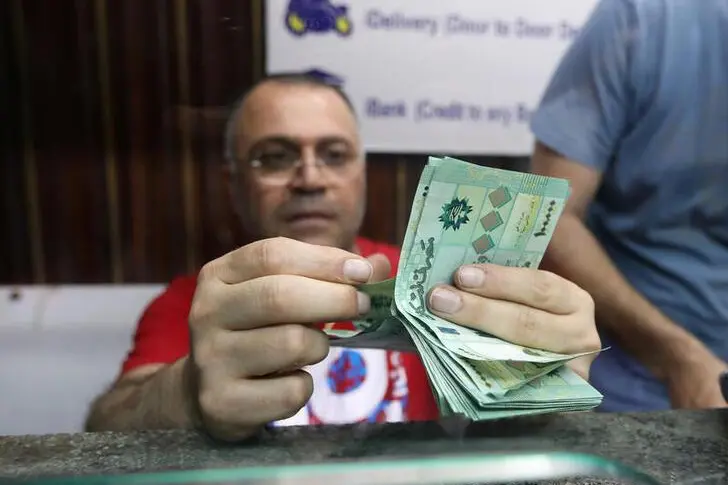PHOTO
BEIRUT: The Lebanese pounds descent against the dollar showed no sign of abating Monday, with the black market dollar trading at LL8,000 despite the launch of an electronic platform several days earlier to regulate the licensed currency exchange market.
The Syndicate of Money Changers in Lebanon set the dollar sell and buy rates for that market Monday at LL3,900 and LL3,850 respectively. Unlicensed traders were meanwhile selling the dollar for as much as LL8,000 and buying it for around LL7,900 in the morning.
Banque du Liban Friday launched an electronic currency trading platform for licensed exchangers to use in a bid to stabilize Lebanons volatile currency exchange market, which has been in a state of chaos since a dollar liquidity crunch bit in late 2019.
BDL as part of this initiative gave licensed traders a tablet with an application named Sayrafa installed on it, and traders are required to enter into the application details of each transaction, including customers identification and evidence of their need to buy dollars.
Different amounts of dollar notes can be sold to people with different needs, which include paying dollar denominated loans and mortgages, paying foreign tuition fees and rent for Lebanese students studying abroad.
BDL is simultaneously pumping approximately $3.4 million in banknotes every day to the licensed exchange market to encourage people to go through the official channels for their currency needs.
The aim is to gradually reduce the dollar exchange rate to LL3,200 by imposing these trading conditions on exchangers, which artificially limit the supply of dollars in Lebanons cash-strapped economy.
Demand for dollars remains sky high and outstrips supply, however, as people scramble to convert their rapidly depreciating pounds into hard currency and as uncertainty proliferates about the likelihood of Lebanon receiving an injection of dollars into the economy from an external body, such as the International Monetary Fund.
The head of the Syndicate of Money Changers in Lebanon Mahmoud Halawi said last Friday that around $8 million in banknotes are needed daily to keep the Lebanese pound stable.
Under the counter traders are filling the daily $4.6 million supply gap, offering customers the chance to buy dollars without the bureaucracy and purchase caps associated with BDL's platform, but at much higher rates.
The dollar since 1997 has been set at LL1507.5 and the government in May began negotiations with the IMF for a $10 billion bailout package that would see the pound float. The governments economic rescue plan, which Cabinet approved in March, projects that the pound will float initially at around LL3,500 to the dollar.
Copyright 2020, The Daily Star. All rights reserved. Provided by SyndiGate Media Inc. (Syndigate.info).





















